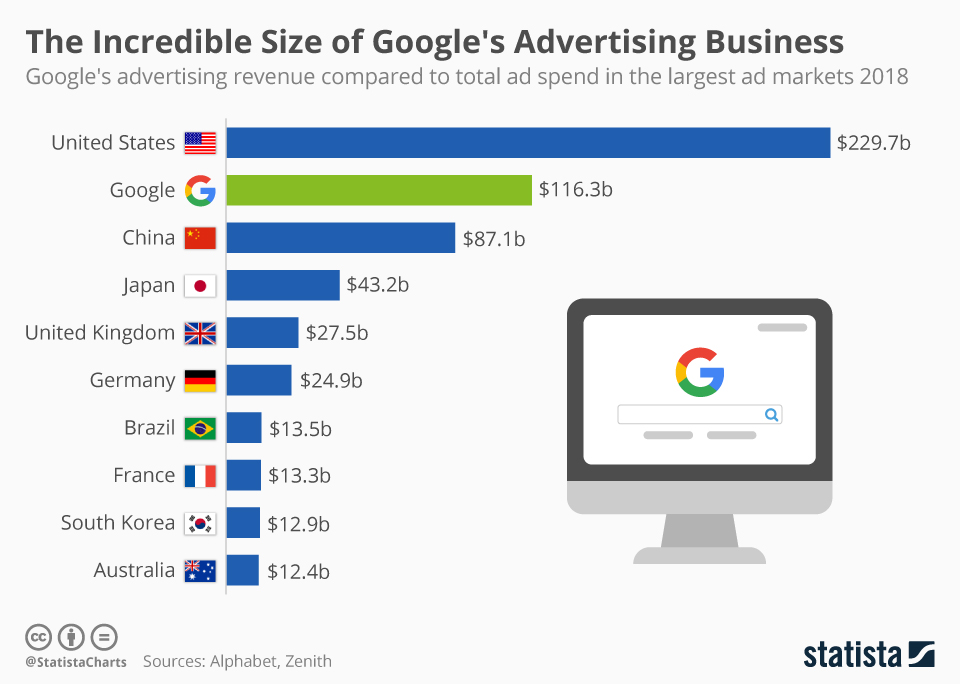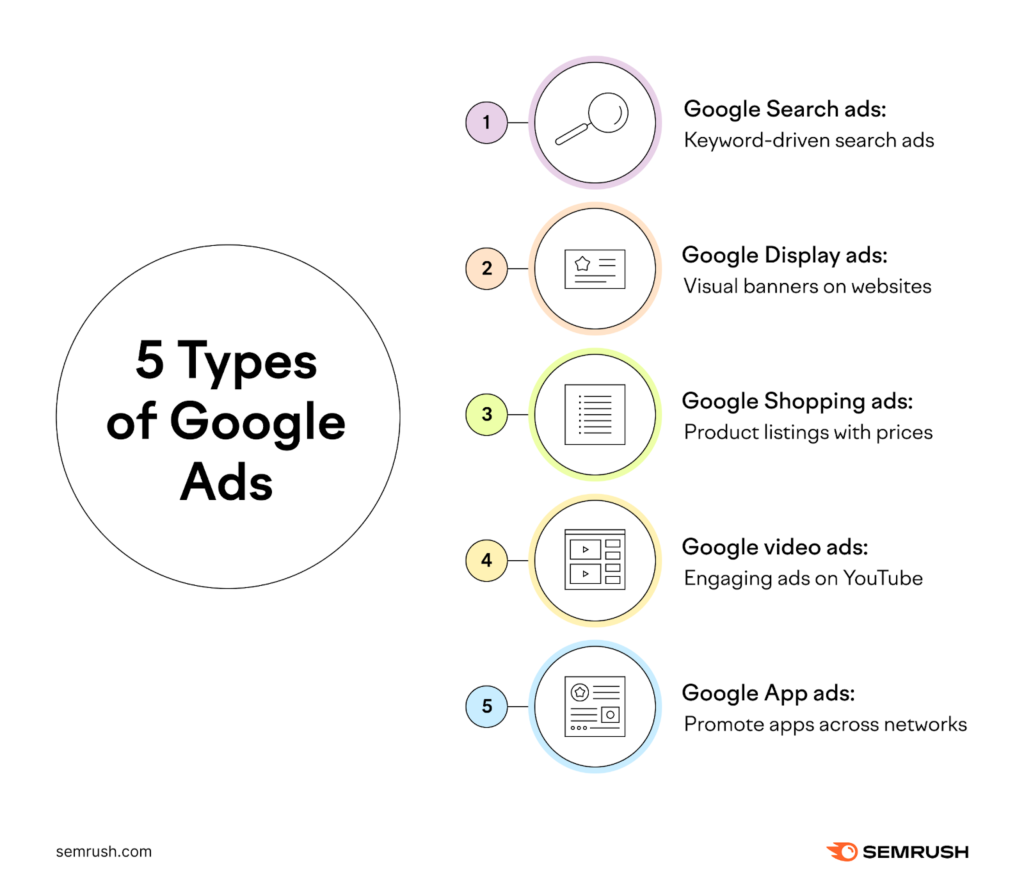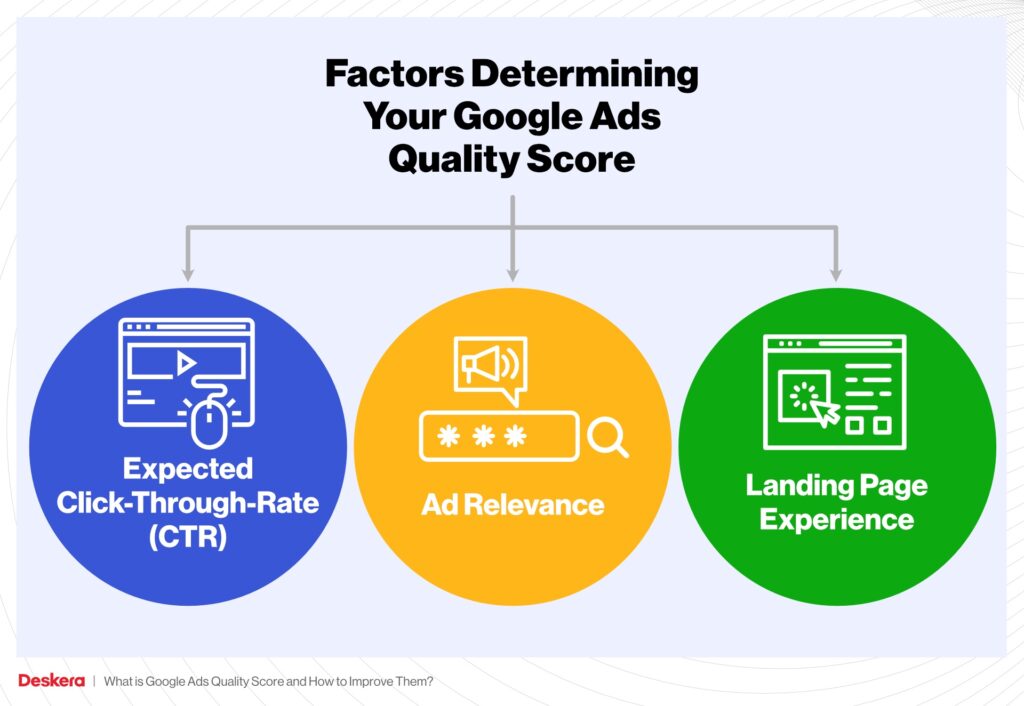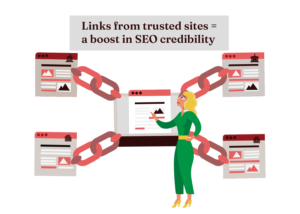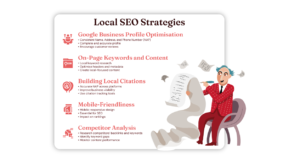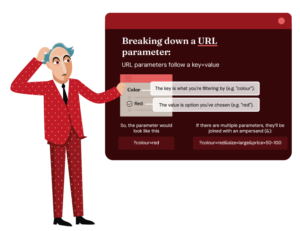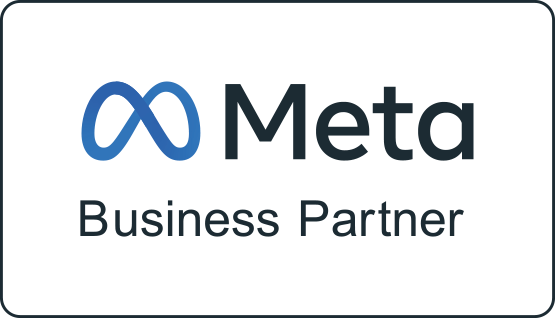Feeling unseen in the digital crowd? Google Ads can help you grow your business online and be more discoverable. They are a low-cost, high-reward solution that should be part of any online marketing strategy. But what’s the price tag?
Google Ads allows you to reach millions of potential searchers and narrow your advertising focus using specific keywords.
As the founder of Aperitif Agency, I’ve worked in the Google Ads management space for over 10 years. I’ve designed marketing campaigns that offer a high return on investment using the power of Google Ads and various other tools to maximise business exposure with minimal investment.
Now, let’s explore the cost of Google Ads and why your business should advertise on Google.
What are Google Ads?
Google Ads is an ad management platform that allows you to create, monitor and manage Google ads campaigns. You can display ads across Google’s large network, including its search engine results pages, YouTube, and other Google properties. You can also be seen across various websites participating in the Google Display Network.
Image credit: Statista
The essence of Google Ads lies in its pay-per-click (PPC) model, where you only pay when someone clicks on your ad, which is a smart way to bring in traffic and sales without breaking the bank.
The platform offers a range of advertising options, from text and display ads to more advanced formats like video and shopping ads. This allows businesses to tailor their advertising strategies to their specific goals and target audiences.
Google Ads also provides powerful targeting capabilities, including keyword, demographic, and location targeting, so ads reach the most relevant potential customers.
How do Google Ads work?
The core of Google Ads is centred around keywords. These are terms users will likely use when searching for products or services. Advertisers choose these keywords and create ads based on them, setting a budget for how much they will spend each time someone clicks on their ad.
Google Ads are effective because they connect advertisers with potential customers who are actively searching for what they offer. Google matches ads with users through a combination of factors, such as the advertiser’s bid amount, the relevance of the ad to the user’s search query, and the overall quality of the ad.
Google assesses ad quality by evaluating factors like click-through rate (CTR), relevance, and the landing page experience. This ensures that users are presented with ads that are most relevant to their needs.
Setting up a Google Ads campaign involves several key steps:
- Outlining your business information.
- Choosing a campaign goal (such as increasing website visits or generating leads).
- Listing your target keywords.
- Creating your ads.
- Choosing your target audience and budget (including maximum amount).
- Launching your campaign.
Once live, Google Ads provides detailed analytics and insights, allowing advertisers to track performance and make informed adjustments to optimise their campaigns for better results.
How does Google determine cost-per-click (CPC)?
To determine their cost-per-click, Google uses lightning-fast Google ads auctions every time someone searches Google for an item or visits a website that allows ad placement. The cost per click is determined by a variety of factors, including:
- Quality of advertisement: Does it contain photographs? A call-to-action? Is it relevant to the topic of the search query?
- The expected clickthrough rate of an ad.
- The quality of the landing page from the advertiser’s website.
- Maximum CPC bid amount.
How much do Google Ads cost?
The cost of Google Ads is mysterious, as there is an actual cost per click and a maximum bid. The actual CPC could be slightly lower or higher than the maximum you’re willing to bid for the ad space. Google only bids higher than the maximum CPC when machine learning deems it likely that the campaign objective will be achieved via that click.
Image credit: Semrush
In Australia, the average cost per click is between $2 and $12, with businesses spending between $5,000 and $15,000 monthly on ad costs in Australia.
The following will determine how much Google charges your business to advertise on the platform.
1. Bidding strategy
Your bidding strategy is the basis for your company’s CPC bidding activity. There are many ways to develop a strategy that works for your company.
When developing a bidding strategy, your first move should be to determine your business goals with your advertising campaign and your ideal return on investment.
Once you’ve developed an actionable bidding strategy, you can use automated or manual bidding on Google Ads.
Automated bidding
This process is by far the fastest way to bid on Google ads. It uses Google’s artificial intelligence to analyse your advertisement’s likelihood of getting clicks and achieving a high conversion rate.
Conversion rates are the number of times your ad was clicked on, and the end user performed an action on the landing page based on that advertisement.
There are three different automated bid strategies that you can select from, and all use AI to help you bid appropriately and win Google Ads auctions.
Target CPA is a bidding strategy that helps hit click targets or manage budgets. This ad campaign aims for conversions like app downloads, website purchases, or sign-ups. These can be set up automatically for ad clicks.
Target ROAS allows Google AI to automatically adjust your bid to match your target return on investment. It helps you get paid for every dollar you spend on advertising by predicting the value of a potential conversion from a click on your ad.
ECPC (enhanced CPC) is a Google feature that uses AI to predict which manual bid clicks are more likely to lead to conversions. It keeps your average cost-per-click below the maximum bid to optimise your ads for conversions and sales.
Manual bidding
If you prefer to take total control over your bidding process for Google ads, then manual bidding is the way to go. Manual bidding allows you to set the maximum bid for your cost-per-click ad.
This allows you to adjust your bids based on assessing the ad’s potential value, enabling a more hands-on strategy in managing your advertising costs and performance.
2. Competition
Competition for Google Ads produces an ad ranking for each advertisement. Who wins the ad auction between you and your competition is determined by your ad quality, topic searches, the location of the users searching for your target keyword, and the user’s device (mobile or desktop).
3. Quality score
Google Ads are each assigned a quality score based on a searcher’s search history for a keyword.
Image credit: Deskera
The quality score is a measurement from 1 to 10 based on the relevance and utility of your ad to users’ keyword searches. To improve your quality score, I analyse the quality of the keywords in your advertising.
4. Campaign goals and targeting
It’s important to remember the overall goals of your Google Ads campaigns and who your Google Ads campaign is targeting.
- Are you looking to improve your clickthrough rate?
- Or do you want to entice customers to download your newest application or sign up for your newsletter?
- Are you expecting them to come to your site, poke around, see an item they want to order, and place an order?
- Who is your target audience?
- How local or global are they?
- If they’re local, are you using your city or town name in the ad to help Google rank you at the top of the results when users search for that service in that place?
Understanding how to maximise the reach of your Google Ads with specific keywords is one of the best ways to reach a local target audience.
5. Budget
Budget considerations regarding Google Ads costs must be made for large and small businesses. Google Ads allows you to set a daily budget and the maximum amount you will spend per advertisement.
These budgeting options allow you to control exactly how much you spend on Google Ads within your ad budget. They also give you a better idea of how your monthly advertising budget is performing.
6. Account performance and optimisation
Google Ads tracks the performance of your ads account over time, giving you an insight into how well (or poorly) your ad campaigns have done. Optimisation is a key part of a successful ad campaign.
It is important to review ad campaigns regularly and make minor changes to maximise their effectiveness. This could involve marginally increasing your bid to break an increased threshold or changing a certain keyword or phrasing to make it more relevant or detectable by Google’s search algorithms.
Tips for managing Google Ads costs
To manage your Google Ads costs effectively and get a maximum return on investment while keeping your overall costs low, you should:
Start with keyword research
Keywords are the backbone of quality Google ads. Some keywords are better than others, as more expensive ones rank higher on Google’s search engine.
Do keyword research to find specific keywords to place within an advertisement that give you a better chance of conversion or clickthrough to act on your site.
Using a keyword planner that performs automatic searches for the best keywords to use is a great way to start keyword research.
Optimise your quality score
Quality scores are one of the main indicators of a Google ad that will perform well. It’s important you optimise your quality score by analysing the ad copy’s relevance to your target keywords.
Test different bidding strategies
Sometimes, doing things yourself is better! However, optimising and manually bidding on Google Ad placements can become tedious. It might not suit your business model or what you want to do with your time as a business owner.
It also could be a sub-optimal way to win bids for Google Ads. Test the bidding strategies above and see which gets you the best return on investment throughout the strategy timeline.
Monitor and optimise campaigns
Your Google ad campaigns must be monitored consistently. The data and information gleaned from these campaigns will help you shape your company’s future of digital marketing.
Google also has a very helpful guide on how to get started with Google Ads and optimise a campaign for a maximum return on investment, which is definitely worth a read.
Summing up
Google Ads provides an affordable solution for businesses looking to reach new customers. Hiring a professional could also help you improve your return on ad spend by running more profitable campaigns. Plus, it can also free up more of your valuable time as a business owner.
Are you looking for a Google Ad expert? At Aperitif Agency, we understand how to run profitable ad campaigns and grow your business’s online presence. Get in touch with our talented team today to learn more about how we can help your business.
